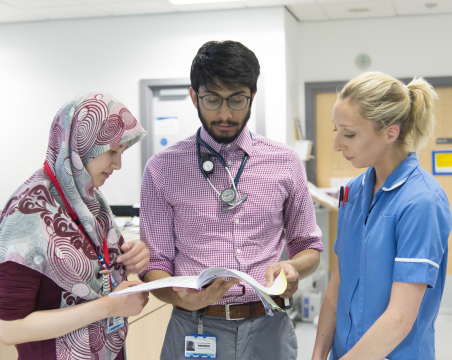In a significant development aimed at addressing the challenges posed by rising inflation and averting further strike actions, the United Kingdom’s government has announced a substantial pay increase for nearly 150,000 doctors within the National Health Service (NHS).
The pay rise, which will take effect this month, is the result of the government accepting the recommendations of the Independent Review Body on Doctors’ and Dentists’ Remuneration (DDRB). Doctors across all levels of the NHS will see notable boosts in their salaries, with first-year doctors in training set to receive an impressive 10.3 percent pay increase, while average junior doctors will benefit from an 8.8 percent raise. Consultants, at the senior level of medical practice, will receive a 6 percent increase in their pay.
The government emphasized that this pay rise is designed to strike a balance between controlling inflation and providing substantial salary increments to healthcare staff. Additionally, some NHS personnel will also have the opportunity to benefit from performance-based pay, overtime compensation, pay progression, and pay raises through promotions.
This decision comes after a wave of strikes across various sectors in the UK, including railways, airports, postal services, and law firms, as the nation grapples with record-high inflation. Notably, healthcare workers have been on strike for several months, further intensifying the pressure on the country’s healthcare system.
The pay rise for NHS doctors represents a significant step by the government to address the concerns of medical professionals and maintain the stability of the healthcare sector amidst challenging economic conditions.
The announcement was welcomed by many doctors and medical associations, who expressed their gratitude and relief at the government’s recognition of their hard work and dedication. Dr. Chaand Nagpaul, chair of the British Medical Association (BMA) council, said that the pay rise was “a long overdue recognition of the vital role that doctors play in delivering high-quality care to patients and protecting the health of the nation”.
However, some unions and opposition parties have criticized the pay rise as being too little, too late. They argued that the pay rise does not reflect the real value of doctors’ work and does not compensate for the years of pay freezes and cuts that have eroded their wages. They also pointed out that inflation is expected to rise further in the coming months, eroding the value of the pay rise.
The Unite union, which represents about 100,000 health workers, said that the pay rise was “a slap in the face” for doctors who have been on strike for months. They said that they would continue their industrial action until they receive a fair and substantial pay rise that matches their demands.
The Labour party also slammed the government’s decision as being “out of touch” with the reality of doctors’ lives. They said that the government has failed to address the root causes of the crisis in the NHS, such as chronic underfunding, staff shortages, and poor working conditions. They called for a comprehensive plan to reform and invest in the NHS.
The government has defended its decision as being “fair and affordable” for both doctors and taxpayers. They said that they have listened to the independent advice of the DDRB and have acted accordingly. They also said that they are committed to supporting the NHS and improving its services for patients.
The government’s decision to increase pay for NHS doctors is expected to have significant implications for both the healthcare sector and the wider economy. It remains to be seen whether it will be enough to resolve the ongoing dispute between the government and medical unions, or whether it will spark further unrest and dissatisfaction among other public sector workers who are facing similar challenges.
A global media for the latest news, entertainment, music fashion, and more.





